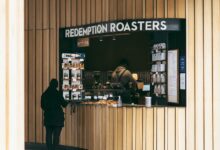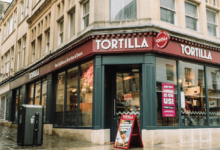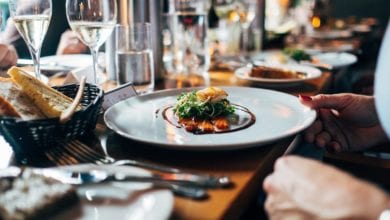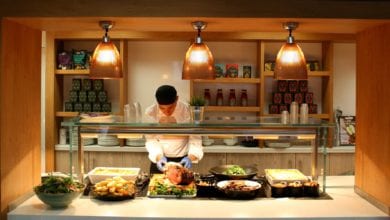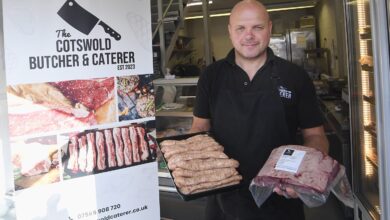
It’s a new year, we should have all made plans and goals for 2020 and perhaps some resolutions too.
The new year to me feels like a new chapter; it gives opportunity, promise and potential. If you don’t feel the new year brings any of those things, then take stock. This is a chance to recalibrate and shift focus for both you and your business. My main advice is to make the most of it.
I have been invited to the first inaugural Women in Fish & Chips event as their guest speaker, I feel my year is off to a great start! I am thrilled to have been asked to speak at the event and I am very much looking forward to hearing from other industry leaders.
It’s a chance to get inspired and learn from others – this will help to enhance our plans and goals. After this, I am heading to London to attend the National Fish & Chip Awards. We are nominated for two awards, so fingers crossed.
I’ve never regretted attending industry events as I have always gained something, either for the business or me personally. However, I do regret not attending enough of them. So, I have set a goal to go to a minimum of four and maximum of eight per year.
This equates to a meaningful investment of both time and money. Choose events wisely and prepare to give them 100%. Networking has provided us an opportunity to meet industry leaders as well as potential suppliers. I will often ask to visit other businesses to learn best practice firsthand.
Meanwhile, back at the café we are gearing up for a menu change and a fairly major refurbishment of our entrance lobby and the FOH till and sales area. This needs to happen before Easter, so it’s all hands-on deck.
Here’s some key things we focus on:
Food Provenance – as many ingredients as possible must come from Scotland or Scottish companies.
Validation of our menu claims – it is our responsibility to ensure that the claims we make will stand up to scrutiny. Membership of schemes like the Scotch Beef Club, Coeliac UK’s Accredited Caterer, Visit Scotland’s Taste Our Best, MSC ecolabel and NFFF Quality Award Scheme are vital to us.
We have a menu planning process in place, to ensure success:
- Carry out a product by product review – sales and margin.
- Review customer feedback from online reviews and our customer market research that was conducted in Autumn 2018.
- Review visual menu presentation and categorization.
- Consider the practical and operational implications of changes Then, make an operational implementation plan. This will include meetings and input from suppliers, staff training, IT and website updates and trialing the new dishes.
- Communicate with customers the benefits of the new menu.
The FOH and new sales area will be managed with a step by step project management plan.
The success of this project rests firmly on the up-front planning, preparation and communication: not only with the team but with customers, bank and funders, along with the trade that is involved.
Being crystal clear about what you want to achieve and not breaking what already works is a good starting point. We followed this by making a case for the ROI. We are looking at the refurbishment as a sound business investment: all while improving the appearance, customer flow, better accommodating disabled customers and enhancing the sales opportunity.
I look forward to sharing our progress in more detail next time.
By Sarah Heward, co-founder of The Real Food Café in Tyndrum, Loch Lomond and the Trossachs in Scotland. The rural café welcomes some 200,000 customers a year.





